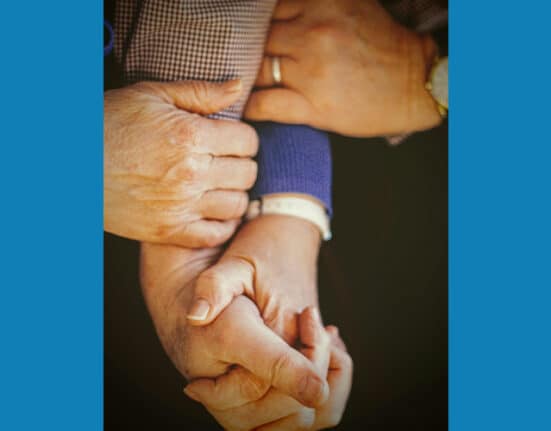IN FILIPINO CULTURE, family is one of the most – if not the most – important thing in life.
While in different cultures it’s been normalized to leave the house as soon as you turn 18, here, no one bats an eye when you say that you’re living with your parents, your grandparents, and your extended family. If anything, it’s encouraged.
Filipinos are very close to their families; many of the decisions that they make in life stem from how it may affect those that they love, and many of the challenges they face, they face for the betterment of their family’s lives.
The pillar of any family, as considered by many, are one’s grandparents. They are the ones that give wisdom to both their children and their grandchildren, embodying the ideal of “Papunta palang kayo, pabalik na ako.”
In the modern day and age wherein Filipino values seem to be fading away by the day, one can’t help but wonder: Are the youth still close with their grandparents? Have their dynamics with one another changed?
To answer this question, republicasia asked three Gen Zs about the time they’ve spent with their grandparents, how they feel about them, as well as what they’ve learned from them thus far.
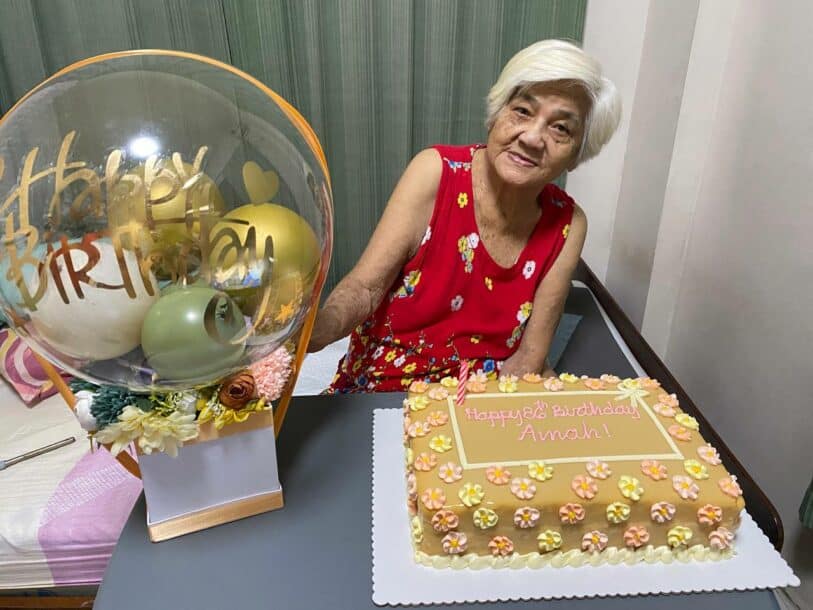
Growing up with you
All throughout the time that he was growing up, 23-year-old Bryan Gadingan always considered himself to be a lola’s boy. Whenever he felt lost in life, he would look toward her for comfort and guidance.
At some point, he even thought that she was his real mother.
“I believe I developed a connection to my lola because she’s very hands-on with me and always brings me along with her wherever she goes; whether it’s the wet market, Divisoria, or Binondo, I’m constantly with her,” he shared.
His family would also often say that he was his lola’s favorite grandchild because she was always spoiling him in some way.
Some of his best memories with her are when they’d go to the wet market, even getting lost along the way, him tagging along with her to Divisoria to buy toys, and even her forcing him to take his afternoon nap.
His favorite memory with her, however, happened all the way back in Kinder, when she bought him merienda and a toy just as an apology for being late.
“It showed me how much she cares about how I feel,” he said.
“There is always a “need” to make up for anything she’s done wrong, even if it’s not required.”
Similarly, 22-year-old Karl Antonio has lived with his lola his entire life, and he’s always been extremely close with her.
“Noong bata kasi ako, hikain ako, [tapos] ang naging “solusyon” ng lola ko is hiramin ako sa mama ko,” he recounted.
He added that he’d only go home to the province during vacation, and whenever he’d visit, he’d experience severe asthma attacks. It was then that he became a lola’s boy because his grandparents would be the ones to take care of him, standing in as his parents.
One of his favorite memories with her is learning how to make ube during New Year’s.
He said: “Tinutulungan ko siya mag-giling ng ube kasi magaling magluto ng ube yung lola ko. [Tapos] yung asawa niya, tinuruan ako paano gumamit ng kutsara at tinidor noong bata palang ako, [tapos] siya din nagturo [paano] mag-bike.”
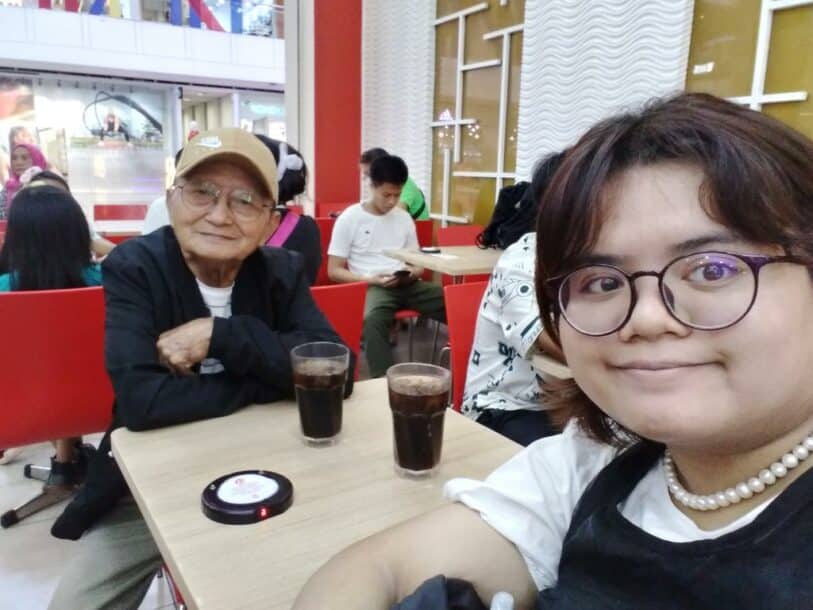
Meanwhile, it is only now that 24-year-old Angeline Esquejo has started to grow closer to her grandparents, because she only used to see them when she was younger.
Despite this, Esquejo always felt that they cared about her deeply, especially since she was their first grandchild. However, there was some distance between them seeing as she didn’t grow up with them.
Five years ago, unfortunately, Esquejo lost her lola, and since then her lolo has been staying with each of his children for a short period of time. At present, he’s staying with Esquejo and her family.
“He always fills up the silence that usually took his place,” she said.
“We would talk a lot when he drove me home to the LRT when I went to school and now that I go to work.”
Her favorite memory with her lolo is when they went on a shopping spree in Muji, wherein he splurged on new clothes.
At the time, he was so excited to buy a bath stool, and his family couldn’t help but laugh when they saw how fancy said stool was. Esquejo explained that it was nice to see her lolo getting what he actually wanted instead of receiving gifts that were just generally accepted.
For Gadingan, grandparents provide emotional support, preserve culture, impart wisdom and life experiences, and help to take care of you, hence why they are a vital part of any family.
Esquejo added: “I think grandparents give you a lot of love they weren’t able to give their own kids. It’s the type of love you might also not receive from your parents. If I had to label it, I would call it an indulgent type of love. It’s also nice to be so generous and kind because we lack one of the most important things with them: time.”
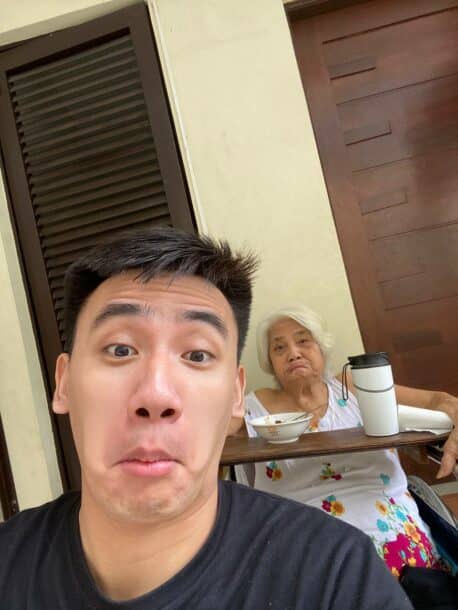
Words of wisdom
Given that your grandparents have lived long before you, it’s inevitable for them to pass their wisdom down to you. Whether they do this to inspire you or to help you learn from the mistakes they made, their one goal is for you to lead the best life that you possibly can.
Antonio says that he always exchanges stories with his grandmother, wherein she talks about what her life was like when she was young.
“Eto yung naiiba sa ibang family members: yung conversation niyo, they’re open with you, and sobrang pure and genuine lang ng [conversation] niyo,” he said.
One lesson he’s learned from his lola is one that almost every Filipino has heard at least once in their life: “Tikman mo muna bago mo sabihing ayaw mo.”
While this is often only applied to food, there are many situations in life wherein this can be used. Karl has, for example, applied this saying to his love life, as well.
Meanwhile, Esquejo has learned from her lolo the value of “pakikisama,” which she sees in him with how he reacts to any kind of situation thrown at him. She’s noticed in his stories that he’s changed so much from when Esquejo’s mother was younger.
“It makes me realize that sometimes, the best thing is to make it easier for yourself,” she shared.
“Go with the path that makes everyone happy and be mindful of your emotions so the people around you can exist easier.”
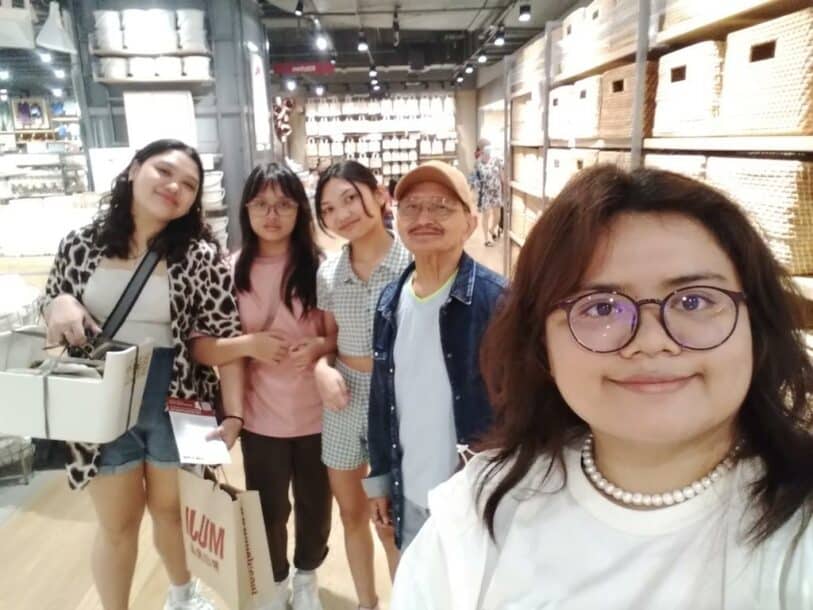
Gadingan shared that while others may be upset by the talkativeness of their grandparents, he views any time they open their mouths as a lesson to be learned, hence why it’s so important to spend time with them.
“Spending more time with them is crucial because no one knows how much time they have left to share these memories with us, and we will definitely miss it,” he advised.
Through his grandmother, he has learned to always look for the beauty in even the smallest of things, as well as to always keep himself grounded and motivated to strive for bigger things.
“My lola taught me that I can cherish life even in its barest form; I witnessed how much she treasures each family member more than anything else in the world,” he shared.
“While having the “wants” will undoubtedly make us happy, not having them will not mean anything to us [when] we deeply value everything that we have in front of us.”

How useful was this post?
Click on a star to rate it!
Average rating 0 / 5. Vote count: 0
No votes so far! Be the first to rate this post.
We are sorry that this post was not useful for you!
Let us improve this post!
Tell us how we can improve this post?


